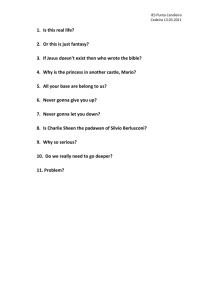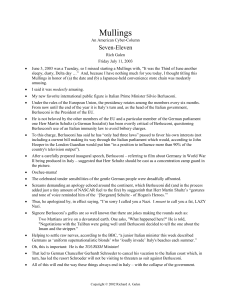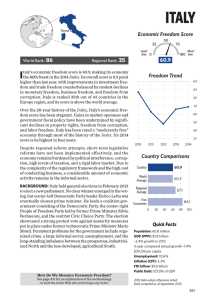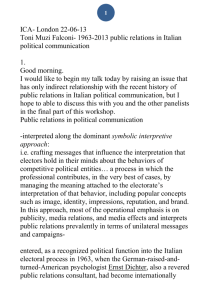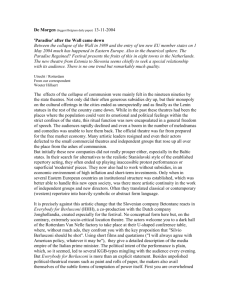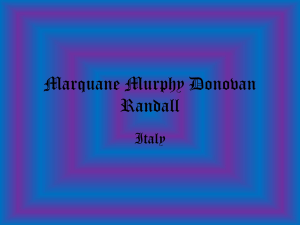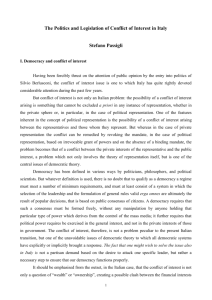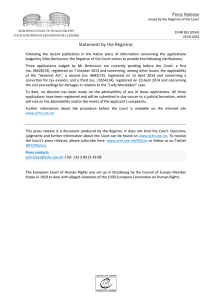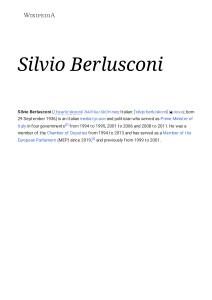Italian's Sharp Tongue Punctures Image of United Europe
advertisement
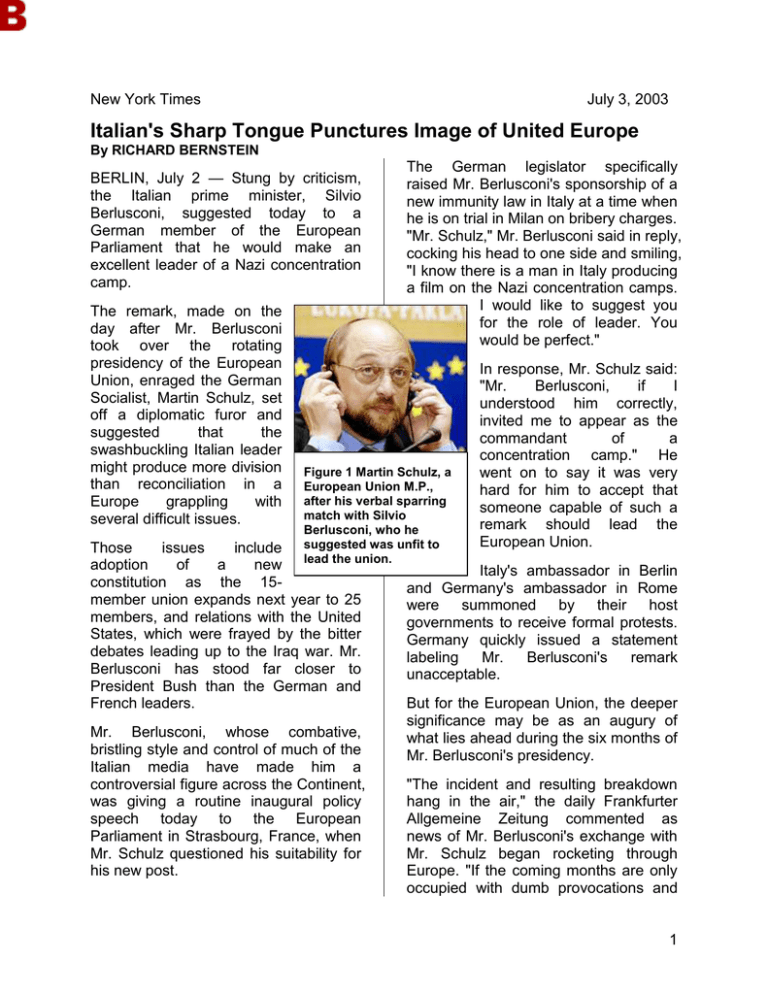
New York Times July 3, 2003 Italian's Sharp Tongue Punctures Image of United Europe By RICHARD BERNSTEIN BERLIN, July 2 — Stung by criticism, the Italian prime minister, Silvio Berlusconi, suggested today to a German member of the European Parliament that he would make an excellent leader of a Nazi concentration camp. The remark, made on the day after Mr. Berlusconi took over the rotating presidency of the European Union, enraged the German Socialist, Martin Schulz, set off a diplomatic furor and suggested that the swashbuckling Italian leader might produce more division than reconciliation in a Europe grappling with several difficult issues. The German legislator specifically raised Mr. Berlusconi's sponsorship of a new immunity law in Italy at a time when he is on trial in Milan on bribery charges. "Mr. Schulz," Mr. Berlusconi said in reply, cocking his head to one side and smiling, "I know there is a man in Italy producing a film on the Nazi concentration camps. I would like to suggest you for the role of leader. You would be perfect." Figure 1 Martin Schulz, a European Union M.P., after his verbal sparring match with Silvio Berlusconi, who he suggested was unfit to lead the union. Those issues include adoption of a new constitution as the 15member union expands next year to 25 members, and relations with the United States, which were frayed by the bitter debates leading up to the Iraq war. Mr. Berlusconi has stood far closer to President Bush than the German and French leaders. Mr. Berlusconi, whose combative, bristling style and control of much of the Italian media have made him a controversial figure across the Continent, was giving a routine inaugural policy speech today to the European Parliament in Strasbourg, France, when Mr. Schulz questioned his suitability for his new post. In response, Mr. Schulz said: "Mr. Berlusconi, if I understood him correctly, invited me to appear as the commandant of a concentration camp." He went on to say it was very hard for him to accept that someone capable of such a remark should lead the European Union. Italy's ambassador in Berlin and Germany's ambassador in Rome were summoned by their host governments to receive formal protests. Germany quickly issued a statement labeling Mr. Berlusconi's remark unacceptable. But for the European Union, the deeper significance may be as an augury of what lies ahead during the six months of Mr. Berlusconi's presidency. "The incident and resulting breakdown hang in the air," the daily Frankfurter Allgemeine Zeitung commented as news of Mr. Berlusconi's exchange with Mr. Schulz began rocketing through Europe. "If the coming months are only occupied with dumb provocations and 1 vain character assassination, it is going to be difficult to move forward the European project. Being reasonable is not everybody's thing." The greeting Mr. Berlusconi got in the parliamentary hall even before the exchange with Mr. Schulz presaged the polarizing effect many believe he will have. Placards held aloft by leftist legislators read, in several languages, "Nobody is above the law" and "No Godfather for Europe." Even before the session, Mr. Berlusconi's assumption of the union presidency had received enormous media attention in Europe, most of it unfavorable. In addition to being the first sitting Italian prime minister to testify as a defendant in a criminal case, Mr. Berlusconi has aroused the ire of the European left by his open admiration for President Bush and by his support of the Iraq war. His relations with some European leaders, particularly Gerhard Schröder of Germany and Jacques Chirac of France, are said to be very tense. Figure 2 Prime Minister Silvio Berlusconi, president of the European Union, during his speech Wednesday. His suggestion that a German legislator could play a Nazi caused months of anger at Mr. Berlusconi to boil over. The most persistent charge, made for years, has to do with conflict of interest. As Italy's biggest media entrepreneur — he owns the country's biggest publishing house and three national television stations — Mr. Berlusconi has been widely accused in his own country of using his political power to favor legislation beneficial to his business interests. Two weeks ago, Mr. Berlusconi's political allies in the Italian Parliament passed a law that exempts the top five serving government officials, including the prime minister, from criminal prosecution. The adoption of the law put a stop to the trial of Mr. Berlusconi, already under way in Milan, though the court holding the trial has challenged the constitutionality of the legislation. But while in the past Mr. Berlusconi has mostly been an issue for Italians, who have twice elected him prime minister, the prospect of Italy's presidency of the European Union sharply ratcheted up the negative views in the European press. The cover story in Der Spiegel on Monday showed a picture of Mr. Berlusconi with the caption, "The Godfather," and contained this comment: "At home he dismantles justice, subjugates television and has laws tailored to his needs, and now he will represent Europe." The Economist, which before his electoral victory in Italy two years ago ran an article titled, "Unfit to Lead Italy," more recently ran another with the headline, "Unfit to Lead Europe." To counter the negative attention he has been getting, Mr. Berlusconi published a letter today in four newspapers in Italy, Germany, France and Spain in which he shot back at his critics. "No one is in a position to give lessons in morality to a government elected by the Italians," he wrote. 2 Mr. Berlusconi refused to retract his comment to Mr. Schulz, saying it was meant in an ironic way. "It was the way in which he spoke," Mr. Berlusconi later said of Mr. Schulz. "It was his gestures. He attacked me and was extremely offensive about me and my country. I replied to his insults ironically with a joke." Figure 3 Current members in yellow -- prospective members in shades of purple. 3

